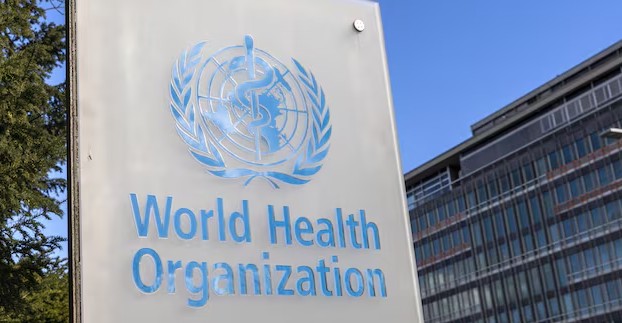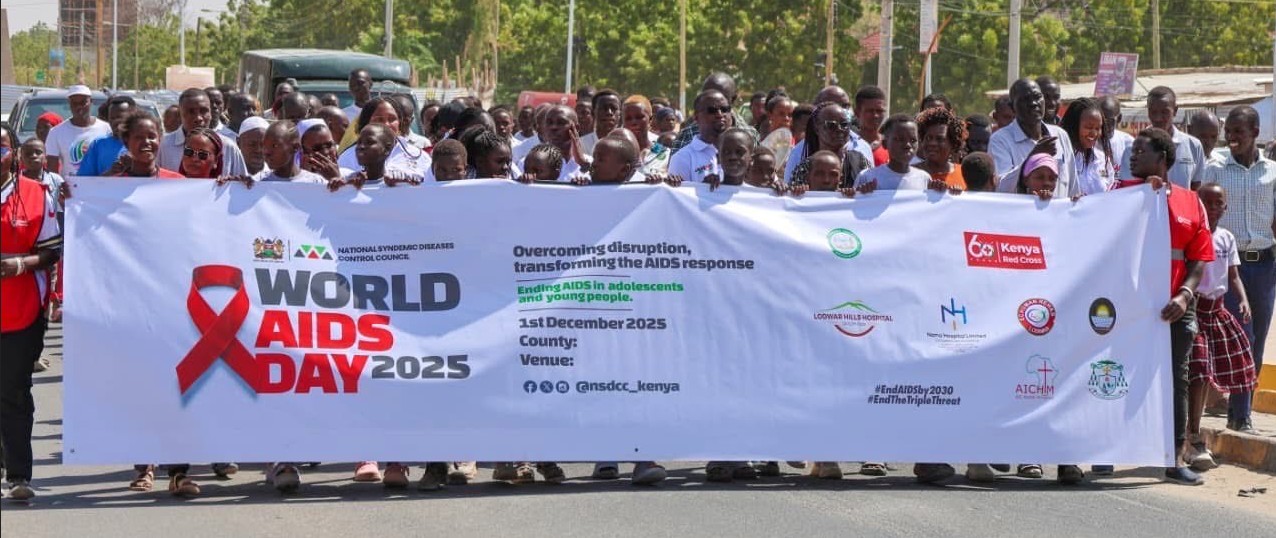Kenya’s flood evictions may violate the law
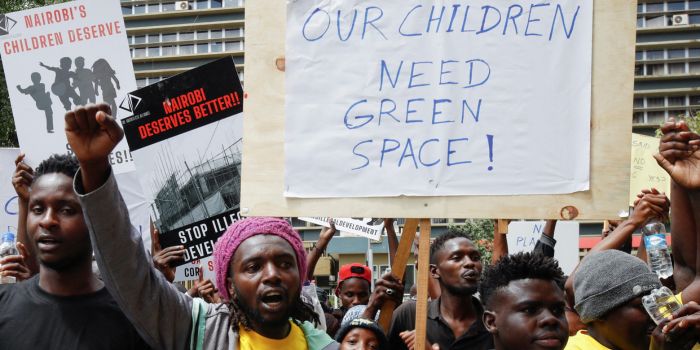
Instead of forcibly evicting communities that have already experienced great hardship, if the government has no alternative option for them, policymakers should tap into their knowledge.
Recent floods in Kenya have left at least 270 people dead, displaced more than 200,000, and destroyed property, infrastructure, and livelihoods across the country. In Nairobi, hundreds of people in informal settlements were left homeless, and thousands were displaced. And now, the government has been evicting people from flood-prone areas.
Smith Ouma is a legal expert with a focus on urban governance. His research has covered land and tenure rights in Nairobi’s informal settlements. Moina Spooner, from The Conversation Africa, asked Ouma to share his thoughts on the government’s response to the flooding in Nairobi’s informal settlements and how it can be improved.
More To Read
- Law Society of Kenya demands immediate halt to Makongeni demolitions over lack of compensation
- Rights groups ask High Court to scrap mandatory housing levy, cite rising poverty
- National Assembly approves regulations for Sh4 million affordable housing loans for rural homes
- Inside the 13,248-unit Mukuru kwa Njenga affordable housing project
- Confusion over President Ruto’s 250,000 housing jobs as sector shrinks
- Ruto defends Shauri Moyo affordable housing amid opposition criticism, vows more development
Why are Nairobi’s informal settlements vulnerable to flooding?
Nairobi’s informal settlements sprang up in the colonial period. Colonial authorities used various laws and public health concerns as a way to remove Africans from areas considered commercially attractive. They were pushed into marginal areas of the city that were prone to hazards like flooding.
This continued after Kenya gained independence. Planning tools (like city master plans) were used to force low-income groups to relocate to the city’s peripheries.
Today, informal settlements cover only 5 per cent of Nairobi’s total residential land area, but they are inhabited by at least half of the city’s population. Because they offer cheap living options, people end up crammed into this small space with minimal basic infrastructure and services.
Informal settlements continue to be vulnerable to hazards like floods because development plans haven’t considered their residents’ needs. The vast majority of informal settlements residents are left to cope in whatever way they can, often against established standards. For instance, residents will use whatever cheap material they can find to build their homes or improve infrastructure, like roads and sanitation facilities.
To make matters worse, as I’ve found in my previous research, there’s been a decline in city institutions. This has weakened the city’s ability to enforce rules and work with residents in low-income neighbourhoods towards creating effective solutions.
For instance, the County Assembly, the primary legislative institution at the county level, has been sidelined. This has created room for unaccountable institutions. The Nairobi Metropolitan Service, for example, was established as part of the president’s office rather than as an independent office in the county government system.
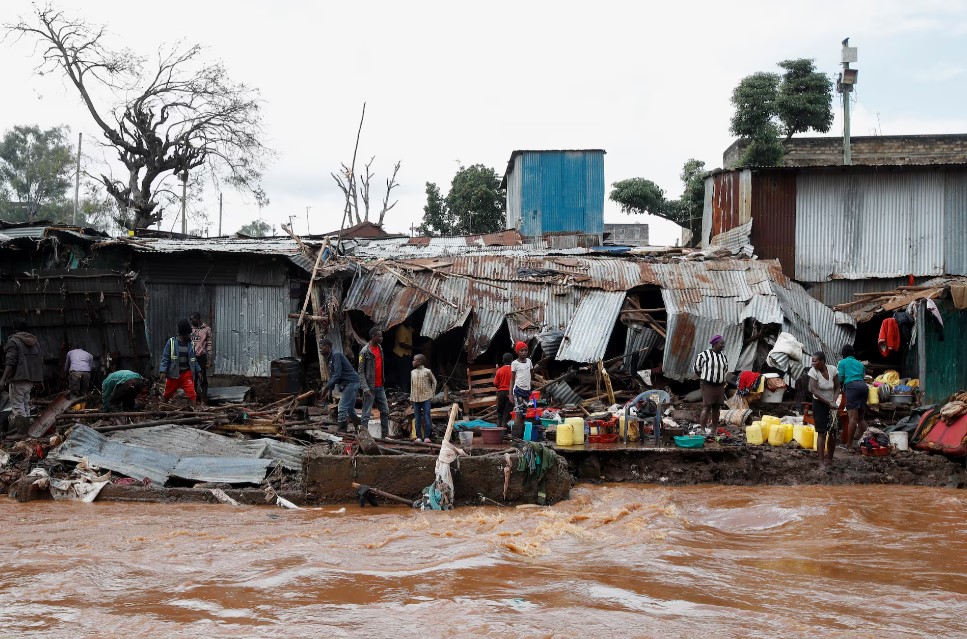 Residents sift through the rubble as they recover their belongings after the Nairobi river burst its banks and destroyed their homes within the Mathare Valley settlement in Nairobi on April 25, 2024. (Photo: Reuters/Monicah Mwangi)
Residents sift through the rubble as they recover their belongings after the Nairobi river burst its banks and destroyed their homes within the Mathare Valley settlement in Nairobi on April 25, 2024. (Photo: Reuters/Monicah Mwangi)
What did the government do to support those affected by flooding?
The government has used forceful evictions in low-income neighbourhoods. President William Ruto ordered the evacuation of all homes along the nation’s waterways.
In the immediate aftermath of the floods, residents of informal settlements and community groups banded together to support each other. Community health workers helped affected households with essential services and medicines. Food and other essential items were distributed by social movements, using donations.
But, rather than acknowledging, applauding, and supporting these efforts, which are the government’s constitutionally mandated duties, the administration came out with reactionary policies and proclamations.
Despite the constitutional guarantee of the right to adequate housing and numerous court judgements reaffirming citizens’ rights against forceful evictions, the government has resorted to heavy-handed tactics.
There are concerns that the new affordable housing programme, aimed at constructing 250,000 affordable housing units per year, might serve as a cover for evicting people from their land. This would create space for investors to build houses for an exclusive market.
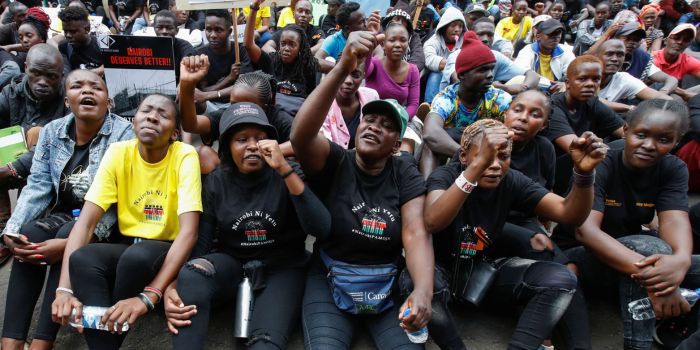 Activists and members of a Nairobi professionals and residents group participate in a demonstration against illegal and unplanned development, following the government's order to demolish buildings set on riparian land to allow for free flow of rivers, in Nairobi on May 16, 2024. (Photo: Monicah Mwangi/Reuters)
Activists and members of a Nairobi professionals and residents group participate in a demonstration against illegal and unplanned development, following the government's order to demolish buildings set on riparian land to allow for free flow of rivers, in Nairobi on May 16, 2024. (Photo: Monicah Mwangi/Reuters)
Are these forced and arbitrary evictions legal?
No. Based on applicable laws and the constitution, in my view, Kenya is violating local laws and other international treaties in carrying out these forced evictions.
First, the state, through the National Land Commission, failed to provide adequate notice to residents (three months as stipulated in the Land Act), which renders the evictions arbitrary.
Second, under the Kenyan constitution, the state has a duty to ensure all Kenyans have a right to adequate housing.
The loss of lives and property as a result of the state’s actions is a violation of residents’ rights to life and property.
Indeed, the Supreme Court has ruled that landless individuals who establish housing on public land have a protectable right to housing on the same land. This includes public land that is along riparian reserves. Any evictions that are to be carried out by the state must respect these rights and procedural requirements.
Third, Kenya is a signatory to various international treaties and conventions that say that any evictions carried out by the state must be in accordance with the United Nations Guidelines on Evictions.
States must take all appropriate means to promote the right to adequate housing and, prior to carrying out any evictions, explore, in consultation with the affected persons, all feasible alternatives with the view of avoiding or minimising the need to use force.
Also, as determined by a high court case in 2013, the state was to develop appropriate legal frameworks for evictions. The Kenyan government failed to do this, leading to a 2018 ruling by the Supreme Court affirming that in the absence of such guidelines, the UN Guidelines on Evictions would be applicable as soft law.
 President William Ruto during a visit Kiamaiko area in Mathare to assess the floods situation in, Nairobi on May 6, 2024. (Photo: PCS)
President William Ruto during a visit Kiamaiko area in Mathare to assess the floods situation in, Nairobi on May 6, 2024. (Photo: PCS)
How should the government have prepared and reacted instead?
The government has invoked its duty to protect lives as justification for the ongoing evictions in low-income settlements. This is a duty that existed even before the onset of the heavy rains. The government received early warnings of possible heavy rains and floods from the meteorological department but did very little to act on these warnings.
The government is also aware of the current national housing deficit of more than 8,888,626 units. This contributes to the expansion of informal settlements.
Armed with this knowledge, the ongoing catastrophe could have been avoided, or at least mitigated.
The state should have mobilised a coalition of actors to develop and implement protective measures for the residents.
Through the work I’ve done in various informal settlements in Kenya, such as Mukuru, I’ve seen how there are already long-standing initiatives by social movements and community groups which could have helped. These could be tapped into to identify risks and build community capabilities to respond to the flooding challenge.
These communities could also help with planning to prevent this situation from happening again. For instance, they’re already undertaking restoration activities along the rivers.
Additionally, in places like Mukuru, residents are actively seeking community-driven solutions to the land and housing challenges that are at the root of informal settlement development. These residents are the climate, environmental, and universal housing champions who the government ought to have been working with even before the floods started.
Instead of forcibly evicting communities that have already experienced great hardship, if the government has no alternative option for them, policymakers should tap into their knowledge.
Top Stories Today

